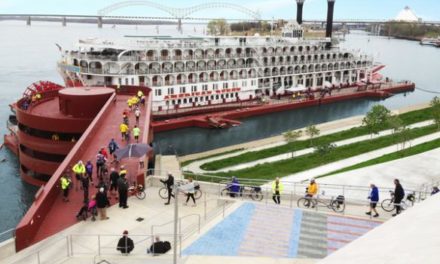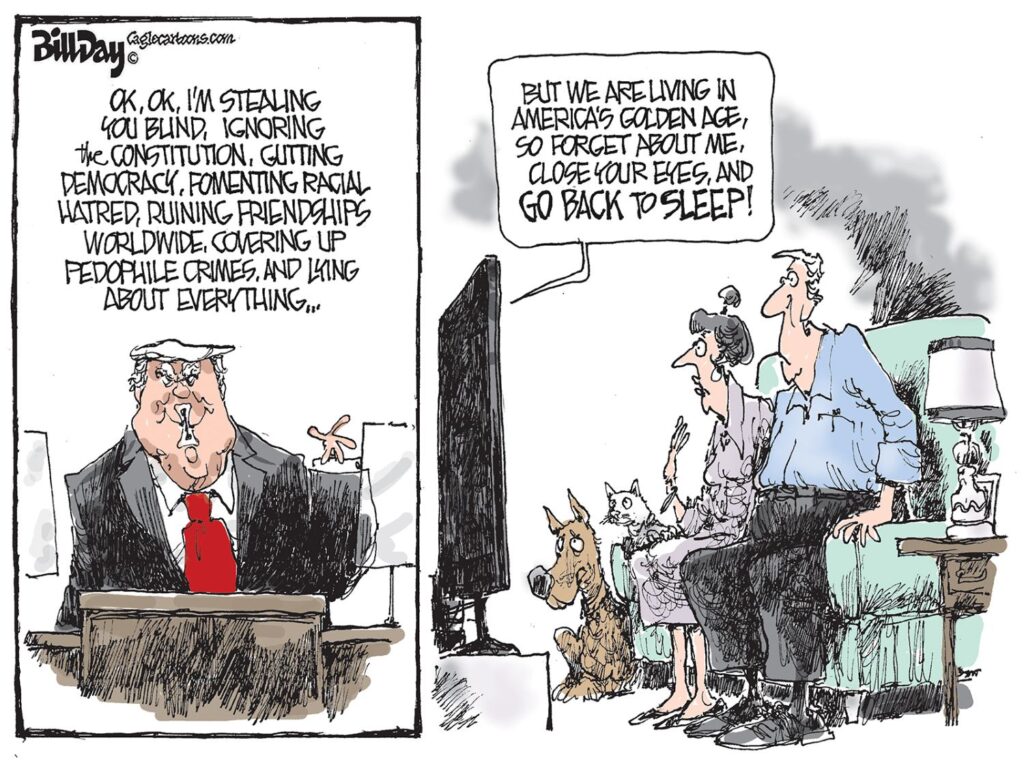For those of us of a certain age, the death of Fred Smith was about more than the end of a remarkable chapter in Memphis history when a 21-year-old college student’s revolutionary idea for overnight delivery created an $88 billion company employing more than half a million people worldwide.
Today, it doesn’t matter where you travel FedEx delivery vehicles are ubiquitous. They show up in the background of photos, whether taken in Paris or Tokyo and they often make cameo appearances in the backdrops of movies.
But Mr. Smith’s death was also a reminder of a 15-year span here – 1970 to 1985 – that was nothing less than the Golden Age of Memphis Entrepreneurs. It’s hard to think of any city the size of Memphis that can boast of as many innovations and visionaries.
It was a time when two multi-national companies alone would be created and produce more than $110 billion in economic impact.
Young Turks
There is of course Fred Smith, but there also are J.R. (Pitt) Hyde, Ron Terry, Kemmons Wilson, A. Maceo Walker, Mike Rose, Jack Belz, Art Gilliam, and William Dunavant, to name a few.
While Memphis music created the soundtrack for the world, it regularly overshadows the way Memphis was also creating modern global commerce and how Americans traveled.
What made this era especially notable was that its impact was not just about business entrepreneurship. It was an exciting time also for civic entrepreneurship too. It was especially led by Young Turks Mr. Hyde, Mr. Terry, and Mr. Smith. They were well-traveled and well-educated and knew that Memphis could be aim higher and do more.
They set priorities, particularly in economic development, for Memphis and put their money where their mouths were. By fusing their charitable and civic contributions, they urged city and county governments to act with more vision and aspiration, and local government regularly joined with them to press for change.
Others were inspired to join in and with the downturn in the Memphis economy in the late 1970s, they set out to leverage Memphis strengths into economic anchors. It led to funding Memphis Convention & Visitors Bureau (now Memphis Tourism) with a hotel-motel tax that allowed it to establish a national profile. A convention center hotel was built to support that segment of the tourism business. It led to an emphasis on Memphis’ unique “amenities” in a national program celebrating the assets that made the city distinctive.
Historic Times
In the process, they recruited Governor Lamar Alexander to their cause and his first executive order was to create The Memphis Jobs Conference, a citywide process on how to spend $20 million in a special state grant, a process which grew to a series of speeches by national innovators who suggested ways for Memphis to be economically successful and breakout groups to decide how to move ahead. It came at a time when the economy was underperforming and Mr. Alexander said it was a Tennessee priority for the city to be successful.
From this citywide priority-setting process grew the emphasis on Memphis as a logistics center – from the fledgling FedEx that moved to Memphis in 1973 to stronger emphasis in 1980 on the city’s port facilities, which today have a $6.25 billion economic impact.
It attempted to exploit the city’s agricultural heritage with construction of Agricenter International, which was to be a “regional resource and technological center for all aspects of agriculture…showplace for cutting edge technology and equipment…a repository for information in a state-of-the-art data bank…a prominent center for innovative research…the site for permanent and changing exhibits…and the host/sponsor/organizer for significant agricultural conferences, seminars and conventions on emerging themes.”
Agricenter International was a swing and miss but most of the other economic priorities were successful. Memphis Tourism went from an afterthought in economic development thinking to an industry of $4.2 billion (domestic visitors only). All of us know the story of FedEx and someone who is one of its more than 30,000 employees. It is Memphis’ largest employer by a mile.
Taking Risks That Paid Off
Behind all of this was a group of entrepreneurs who were fearless and willing to risk everything for an idea.
That certainly described Fred Smith. He was 29 years old when then-Federal Express moved from Little Rock in 1973 and the first flights out of Memphis on April 17 delivered 186 packages to 25 U.S. cities. Today it delivers about 16 million packages to more than 650 airports.
It also marks the time when the Memphis and Shelby County Airport Authority made the smartest – and most profitable – decision in its history by providing the young company with incentives that included a low-cost lease for facilities and a $6 million loan to establish its operations at the airport.
Mr. Hyde was an early supporter of Mr. Smith. They had known each other since elementary school, and he was to become a FedEx board member for 34 years.
Mr. Hyde was only 26 years old in 1968 when he took over management of Malone & Hyde and steered it through rapid growth and tripled sales volume. For 10 years, he was the youngest CEO on the New York Stock Exchange. Ultimately, the wholesale food distributor became the third largest in the U.S. before he sold it in 1988. By then, he was pursuing an idea for a customer-friendly aftermarket auto parts company. It became AutoZone, which opened its first store in 1979 and today has more than 7,250 stores and revenues of more than $18 billion.
Through his personal and philanthropic money, he has been instrumental in almost every thing that matters – from the Grizzlies to National Civil Rights Museum, from Ballet Memphis and Memphis Art Museum, from leadership programs to Memphis Medical District Collaborative, from Shelby Farms Park to Tom Lee Park, and dozens and dozens of other organizations and programs.
Creating a Different Memphis
Mr. Terry was named president of First Tennessee Bank the same year that FedEx moved to Memphis. He was 43 years old. Inspired, educated, and informed by bank vice-president Carol Coletta, he was intrigued by the impact of that the business community in producing smart public policy for Memphis.
He would grow First Tennessee Bank to become the state’s largest bank holding company, but even more, he was willing to fight for his ideas for a better Memphis, lobbying elected officials, funding campaigns and programs, and helping almost anyone who shared his pride in his hometown.
Mr. Smith, Mr. Hyde, and Mr. Terry did not reference the past of Memphis. They were doing nothing less than trying to invent a new Memphis. They had such a heart for Memphis and never let their ambitions for their companies overwhelm their ambitions for their city. The times then – just as they do today – called for a different kind of Memphis and they stepped forward to be a different kind of civic leader.
But there was even more going on during this golden age of entrepreneurs. In 1972, Kemmons Wilson was featured on the cover of Time magazine when his company, Holiday Inns, had 1,700 motels. “He has transformed the motel from the old wayside fleabag into the most popular home away from home,” the magazine wrote.
Thirty-one year-old Mike Rose moved to Memphis in 1973 – it was a momentous year for Memphis – with the mission of helping to turn around the hotel company and he would eventually become chairman of the board and CEO. He would develop a strategic plan that led to the purchase of Harrah’s Entertainment and creating new hotel flags. Ultimately, the company would become a hotel and casino industry leader and he would become a major civic and charitable player in the community.
Other Strides of the Era
In 1972, William Dunavant, 40, made the first sale of American-grown cotton to China. Under his leadership, the company dramatically increased its cotton trading volume, reaching one million bales by the early 1970s and later hitting a record of 3 million bales. At its peak, Dunavant Enterprises was one of the world’s largest independent cotton merchants. Mr. Dunavant was instrumental in convincing Ducks Unlimited to move its headquarters to Memphis at Agricenter.
Art Gilliam, a Yale University graduate with a degree in economics, was the first African American reporter at WMC-TV in 1968 and in 1977, he bought WLOK, which made it the first Black-owned radio station in Memphis. He also got a master’s degree in business administration from the University of Michigan and then came back to Memphis to work at Universal Life Insurance, which was where his father worked.
A founding principle of Universal Life was to provide financial services and opportunities for African Americans. A. Maceo Walker became president of University Life Insurance when his father died, and by 1973, it had become the fourth largest Black-owned insurance company in the U.S. The company did more than provide insurance. It also stimulated economic development and provided mortgages and scholarships for African Americans that were often denied to them by mainstream institutions.
An icon of Memphis – affecting its economy as well as its self-image – is the Peabody Hotel. In 1975, Belz Enterprises – headed up by 48-year-old CEO and Chairman Jack Belz – bought the hotel. Belz Enterprises was one of Shelby County’s largest real estate development and management companies and one of the largest Holiday Inn franchisers. The hotel reopened in 1981 after extensive renovations and was the culmination of Jack Belz’s vision of downtown rejuvenation.
There were other business luminaries active during the time – John Hull Dobbs, Abe Plough, L.R. Jalenak, Jesse Turner Sr., Arthur Seessel, Henry Turley, Willard Sparks, and many more.
A Legacy of Leadership and Results
In retrospect, it is stunning that Memphis had so many innovative business leaders defining their city and in so doing, they did more than create an economy; they built an optimism and confidence about the direction of Memphis that has not been replicated to the same degree since.
In those years, there was always the gravitational pull that Memphis was in good hands and the vein of entrepreneurial imagination was a reservoir that could be tapped not just for a new economy but for progressive public policy.
The era should be the ultimate motivator for today’s business leadership. After all, if they need inspiration, they need only look back a few decades to the golden age of Memphis entrepreneurship.
**
These blog posts can also be found on the Smart City Memphis Facebook page and on Instagram along with occasional articles, reports, and commentaries that are relevant to Memphis.




